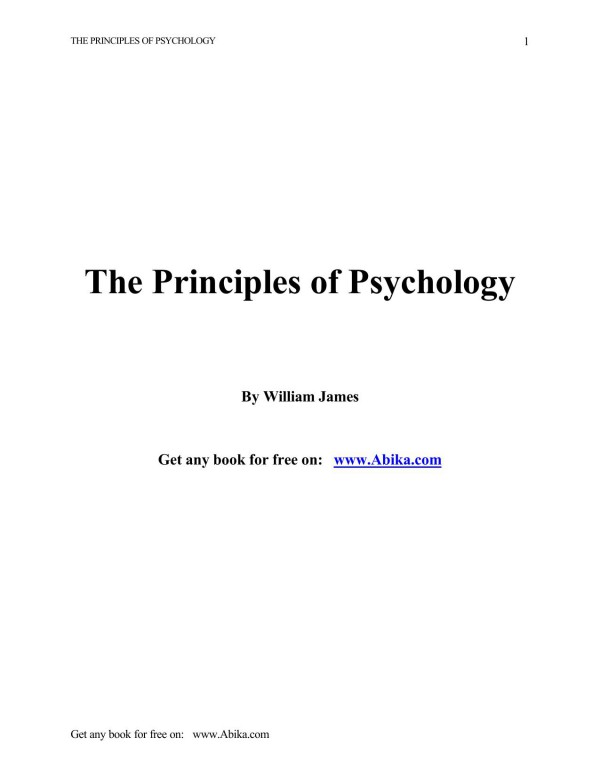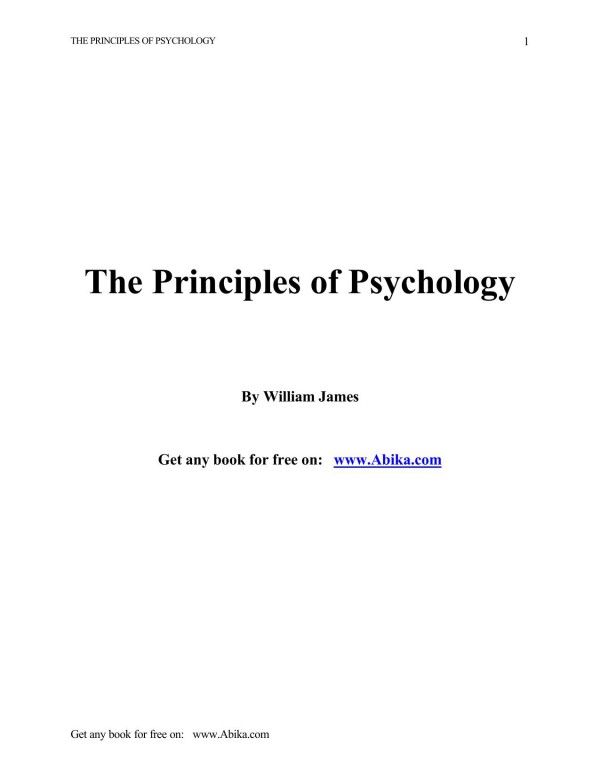The Principles of Psychology 1st edition by William James ISBN 0486203816 9780486203812
Original price was: $50.00.$25.00Current price is: $25.00.
Authors:William James , Series:Psychology [207] , Tags:Education / Curricula Education / Reference Education / Teaching / General Education / Teaching / Subjects / Mathematics Science / Study & Teaching , Author sort:James, William , Languages:Languages:eng , Published:Published:Aug 2000 , Publisher:www.Abika.com , Comments:Comments:Psychology is the Science of Mental Life, both of its phenomena and of their conditions. The phenomena are such things as we call feelings, desires, cognitions, reasonings, decisions, and the like; and, superficially considered, their variety and complexity is such as to leave a chaotic impression on the observer. The most natural and consequently the earliest way of unifying the material was, first, to classify it as well as might be, and, secondly, to affiliate the diverse mental modes thus found, upon a simple entity, the personal Soul, of which they are taken to be so many facultative manifestations. Now, for instance, the Soul manifests its faculty of Memory, now of Reasoning, now of Volition, or again its Imagination or its Appetite. This is the orthodox ‘spiritualistic’ theory of scholasticism and of common-sense. Another and a less obvious way of unifying the chaos is to seek common elements in the divers mental facts rather than a common agent behind them, and to explain them constructively by the various forms of arrangement of these elements, as one explains houses by stones and bricks. The ‘associationist’ schools of Herbart in Germany, and of Hume, the Mills and Bain in Britain, have thus constructed a psychology without a soul by taking discrete ‘ideas,’ faint or vivid, and showing how, by their cohesions, repulsions, and forms [p.2] of succession, such things as reminiscences, perceptions, emotions, volitions, passions, theories, and all the other furnishings of an individual’s mind may be engendered. The very Self or ego of the individual comes in this way to be viewed no longer as the pre-existing source of the representations, but rather as their last and most complicated fruit.













